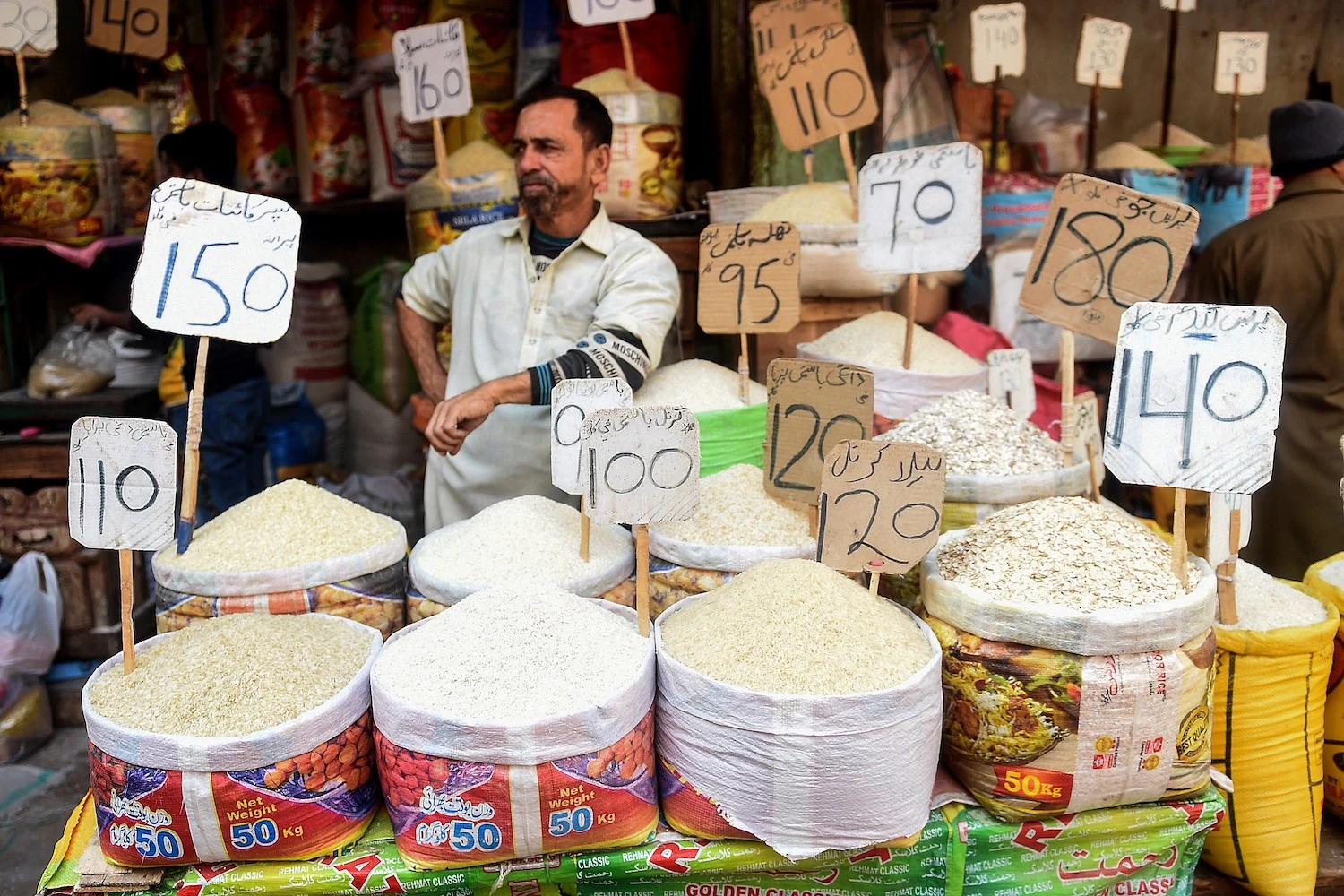
The Consumer Price Index has touched 31.5% last month year-on-year, the highest in nearly 50 years, according to the Pakistan Bureau of Statistics.
The bureau said that the prices were up 4.3% in February, compared to the previous month, adding the CPI, the inflation monitor, touched 27.55% on year-on-year basis.
It jumped amid an over 45% surge in food, beverage and transportation prices in the country. The inflation spike is the highest since 1974, a PBS spokesperson told Reuters.
In February, the government okayed a supplementary bill that took the goods and services tax to 18% from 17% to aid in raising 170 billion rupees ($639 million) in extra revenue for the current fiscal year.
The government is aiming at increasing revenues via taxes as it struggles to finalise a deal with the International Monetary Fund (IMF) to secure some $1.1 billion in funding.
Read this too: Cut In Prices Of Petrol, Diesel Announced
The country’s reserves have been reduced to about $3 billion, which experts think is only enough for 16 or 17 days of imports, and the government is in a race against time to enact tax measures and come to an agreement with the International Monetary Fund (IMF).
Not only would there be a disbursement of $1.2 billion as a result of the agreement with the IMF at the conclusion of the ninth review of a $7 billion loan programme, but it would also enable inflows from friendly countries.
The country would save Rs200 billion a year, according to a number of austerity measures that Prime Minister Shehbaz Sharif outlined last week. Pakistan is fighting a severe economic crisis and is in desperate need of money.
According to an analysis, to mitigate economic crisis, there is a need of an informed dialogue between the business community and policy makers. Private sector may be encourage to have share in planned investment, government must be in the partnership with private sector in larger public investment, and also the weak public entities can be handed over to the private sector.
The private sector has its capital invested abroad, kept in the banks , it will be utilized in the productive manners and the capital inflow will increase once government is able to win the trust of the private sector, it will reduce the pressure on public exchequer and increase in developmental budget.
The bureau said that the prices were up 4.3% in February, compared to the previous month, adding the CPI, the inflation monitor, touched 27.55% on year-on-year basis.
It jumped amid an over 45% surge in food, beverage and transportation prices in the country. The inflation spike is the highest since 1974, a PBS spokesperson told Reuters.
In February, the government okayed a supplementary bill that took the goods and services tax to 18% from 17% to aid in raising 170 billion rupees ($639 million) in extra revenue for the current fiscal year.
The government is aiming at increasing revenues via taxes as it struggles to finalise a deal with the International Monetary Fund (IMF) to secure some $1.1 billion in funding.
Read this too: Cut In Prices Of Petrol, Diesel Announced
The country’s reserves have been reduced to about $3 billion, which experts think is only enough for 16 or 17 days of imports, and the government is in a race against time to enact tax measures and come to an agreement with the International Monetary Fund (IMF).
Not only would there be a disbursement of $1.2 billion as a result of the agreement with the IMF at the conclusion of the ninth review of a $7 billion loan programme, but it would also enable inflows from friendly countries.
The country would save Rs200 billion a year, according to a number of austerity measures that Prime Minister Shehbaz Sharif outlined last week. Pakistan is fighting a severe economic crisis and is in desperate need of money.
According to an analysis, to mitigate economic crisis, there is a need of an informed dialogue between the business community and policy makers. Private sector may be encourage to have share in planned investment, government must be in the partnership with private sector in larger public investment, and also the weak public entities can be handed over to the private sector.
The private sector has its capital invested abroad, kept in the banks , it will be utilized in the productive manners and the capital inflow will increase once government is able to win the trust of the private sector, it will reduce the pressure on public exchequer and increase in developmental budget.

